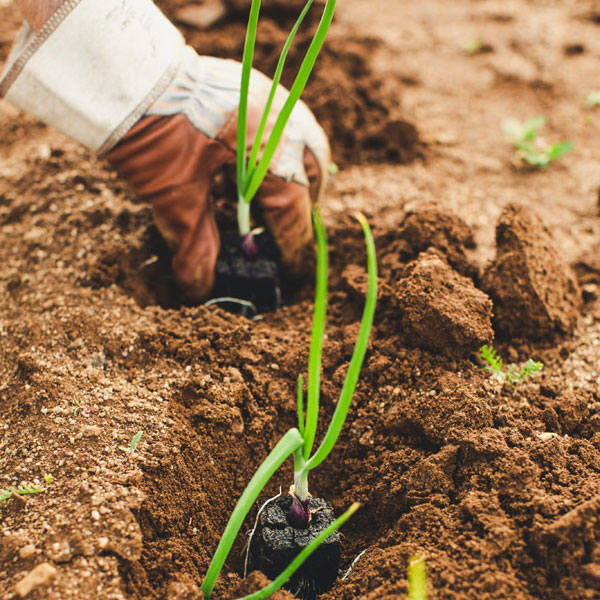White House touts Inflation Reduction Act for climate change and job opportunities

[A farmer planting vegetables. Photo Credit to Unsplash]
In a recent announcement, White House lauded the impact of the Inflation Reduction Act (IRA), which created over 210,000 new clean energy jobs in August 2022 and an additional 252,000 construction jobs in 2023.
These successful changes from IRA investments lead to the increase of support from the general public.
Of particular note are the government’s efforts in agricultural reform, which have shown promising progress, and more farmers are interested in sustainable practices.
The United States Department of Agriculture (USDA) has labeled the IRA as the single largest investment in climate and clean energy solutions in American history.
With this investment, the IRA will help producers stay on their farm, help prevent producers from becoming ineligible for future assistance, and promote climate-smart agriculture by increasing access to conservation support.
The IRA’s investment can be broken down into loans and conservation efforts.
IRA assistance for conservation is available through programs such as the Environmental Quality Incentives Program (EQIP) or Conservation Stewardship Program (CSP) by the Natural Resources Conservation Service (NRCS).
Conserving natural resources is a vital part of creating and maintaining healthy ecosystems on our lands and helps us to mitigate the downside of climate change.
Since 2023, NRCS has invested a lot of money to fund 45,000 contracts with farmers or ranchers to address natural resource concerns defined as an expected degradation of the soil, water, air, and other resrouce degradation.
NRCS will support its conservation programs with approximately $19.5 billion of IRA funds, with allocations including $8.45 billion for EQIP, $4.95 billion for the Regional Conservation Partnership Program (RCPP), and $3.25 billion for CSP.
These efforts aim to provide farmers or ranchers with incentives to lead them to adopt and utilize more environment-friendly farming and ranching and reduce carbon-footprint from agricultural industry.
EQIP stands out as NRCS’s flagship conservation program, offering technical and financial assistance to agricultural producers and forest landowners.
It addresses various natural resource concerns, such as improving water and air quality, conserving ground and surface water, increasing soil health and reducing soil erosion and sedimentation.
Producers selected for IRA funding undergo a personalized conservation planning process with NRCS, implementing practices aimed at fostering cleaner water and air, healthier soil, and enhanced wildlife habitats, all while optimizing agricultural operations.
Among the beneficiaries of IRA funds is Josh Daniels of Dalmatia, Pennsylvania, whose family farm has witnessed remarkable transformations through its partnership with NRCS.
Improved water quality, reduced manure leaching, and enhanced soil health are just a few of the tangible outcomes experienced by the Daniels family.
“Grass strips and pollinators are taking the carbon dioxide and putting it into the soil, so it’s helping. By not tilling, we are not releasing carbon dioxide. The cover crops help get the carbon down into the soil,” Josh said.
He added, “The more we can grow green and not disturb the soil, the better.”
NRCS continues to accept producer applications for its conservation programs year-round, with deadlines for fiscal year 2024 funding dependent on each state’s ranking dates.
IRA is in action for everyone and sustainable agriculture can drive conservation goals on farms nationwide.

- Carson Seo / Grade 10
- Basis Independent Mclean

![THE HERALD STUDENT REPORTERS [US]](/assets/images/logo_student_us.png)
![THE HERALD STUDENT REPORTERS [Canada]](/assets/images/logo_student_ca.png)
